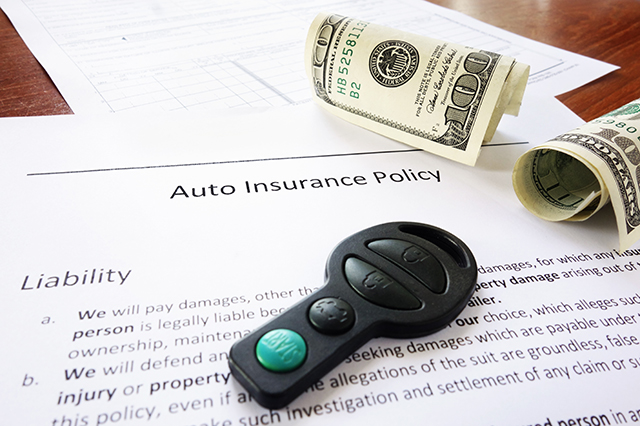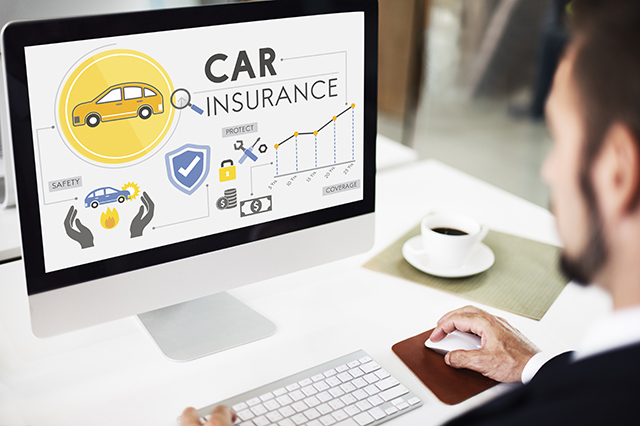Learning about an auto insurance premium increase can be a serious bummer, especially for safe drivers with clean records.
Thankfully, there are steps motorists can take to potentially limit hikes in their car insurance rates.
Here are a few.

How to take control of your car insurance rates
Drive safe: Avoiding accidents and speeding tickets is the most important part of avoiding a hike in insurance rates. Insurance rates are ultimately about risk. The higher risk a driver represents, the more an insurance company is likely to charge. Motorists with tickets and crashes on their records are higher risks for insurance companies, and their premiums typically reflect that.
Bundle up: Getting auto, renters and homeowners insurance through the same company is a recipe for savings. Most companies give discounts to customers who bundle coverage.
Look at your deductibles: Deductibles are what drivers are required to pay toward the cost of a claim before insurance kicks in. Drivers who increase their deductibles may see a drop in car insurance rates because they’re limiting the costs their insurance companies will face following crashes. Skilled insurance agents can often help drivers find sweet-spots that weigh budget-friendly deductibles with figures that help keep car insurance rates down.
Look at your vehicles and coverage: The cost of repairing a vehicle after a crash factors into car insurance rates. A high-end sports car is likely going to be more expensive to insure than your everyday sedan because, after a crash, it’ll likely be more expensive to fix. Drivers can also consider the types of coverage they have, like collision. Collision coverage can be a valuable component of an auto insurance policy. Unlike liability coverage, which helps cover damage to other people and property when you’re at-fault in a crash, collision coverage helps pay to have your car repaired if it strikes another vehicle or an object, such as a tree.
Collision might make sense for newer cars – it may also be required for financed vehicles – but as cars get older and their values decrease, the expense of such coverage might not be worth it.
There is typically a point where the premium cost of collision coverage and its deductible can approach or even exceed the cash value of a vehicle. Many drivers weigh this value proposition regularly once their vehicles turn 10 years old or older.
Good grades: Adding a teen driver to your policy can be expensive, but many companies will give discounts on car insurance rates for young drivers who get B averages in school. If you’re adding a teen driver to your policy, it can also sometimes be helpful to limit potential insurance rate increases by having them take professional driving courses.
Take a defensive driving course: In some states, taking a defensive driving course, like the AAA Driver Improvement Program, can earn you discount on your car insurance rates. Even if you don’t get a discount, the tips you learn can help keep you safe behind the wheel, which, as you read earlier in this story, can be a big part of managing insurance rates.
Use your garage: Has your garage become more of a storage container than a place to house your vehicle? If so, think about spending a Saturday or Sunday cleaning it out. Not only could you position yourself to make a few bucks off a yard sale, you’ll get the good feeling that comes from a freshly tidied space, and some companies offer discounts on insurance rates for drivers who garage their vehicles.
Pay at once: A lot of drivers pay for insurance in monthly increments. While that may be beneficial for your wallet in the short term, it could cost more over the length of a policy. Some companies offer discounts on car insurance rates for drivers who pay their premiums in one fell swoop. For drivers who must make monthly payments, some companies may provide discounts on insurance rates if you opt to have deductions made automatically on the same day every month.
Maintain good credit: In most states, having mediocre or poor credit can impact your car insurance rates. It’s a good idea to know where you credit stands not just for auto insurance, but for all of your borrowing needs. Consumers are entitled to free copies of their credit reports once per year from each of the nation’s leading credit repositories – TransUnion, Equifax and Experian. You can request these reports online at www.annualcreditreport.com.
Talk to your agent: A lot of drivers only talk with their insurance agents when they’re looking for a policy quote or after an accident. But regular communication with your agent can help make sure your car insurance rates aren’t higher than necessary. Skilled agents, like those at AAA, know the right questions to ask to make sure you’re taking advantage of every saving possible.
Need to look at your coverage? Learn how AAA can help with your insurance needs.














